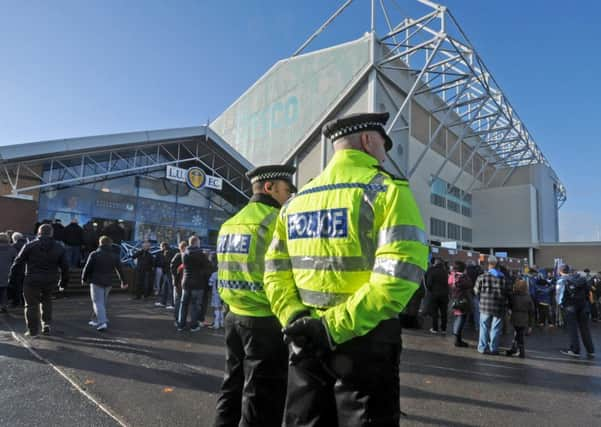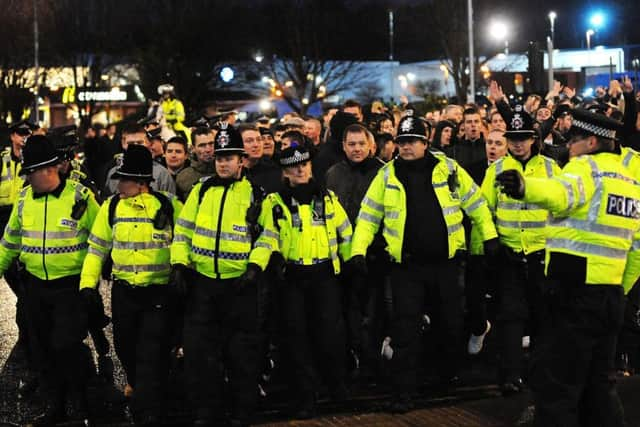Exclusive: Police may not be able to meet cost of covering football


Bills paid by some of the biggest clubs in the country have fallen even more significantly, including Leeds United whose payments to West Yorkshire Police nearly halved from £878,124 in 2012/13 to £477,476 to last season. Arsenal paid £466,062 to the Metropolitan Police, down from £923,462, while Manchester United’s payments to Greater Manchester Police fell from £1,154,557 to £656,710 over the same period.
The pattern has been repeated at the majority of clubs, prompting asst chief constable Mark Roberts, the National Police Chiefs Council lead for football policing, to warn current arrangements “don’t adequately reflect the amount of resources we have to use to police matches and it’s getting harder to meet the costs.”
Advertisement
Hide AdAdvertisement
Hide AdFreedom of information requests to police forces have revealed the total paid by clubs fell from £14.5m in 2012/13 to £11.5m last season.


Payments have been falling in the wake of a landmark court case between Leeds and West Yorkshire Police in 2012 when a judge ruled clubs could only be charged for policing in stadiums or on land owned or controlled by clubs in their immediate vicinity. Policing away from grounds, where trouble is often more likely, has to be met from existing budgets.
Although an increase in stewarding and improved fan behaviour have played a part in cutting bills, Mr Roberts acknowledged the court ruling had a significant impact.
“The Leeds case made the position very clear in terms of what we can charge for and that certainly doesn’t cover all the officers deployed on typical matches,” he said. “We are not getting paid for what we have to deploy at many football matches. It really drew a line in the sand and until the law changes, that’s what we can charge for.”
Advertisement
Hide AdAdvertisement
Hide AdMr Roberts pointed out the drop in payments co-incided with ever more money coming into the game, with the last TV rights deal for Premier League football worth £5.1billion.
To highlight the burden on forces, Mr Roberts cited one unidentified match in which 525 officers had been on duty but only 195 could be charged for. He said it was not uncommon for more than 500 officers to be required for a big game and Northumbria Police had previously deployed more than 1,000 officers for a derby between Newcastle and Sunderland.
Mr Roberts said: “The resources available have reduced and to be frank we have now got fewer officers. As forces shrink, the more we have to commit significant resources to football without being paid for it, the more it becomes an issue.
“At some point we are going to have to review that and see if there is a more sensible way of funding the policing of football.”